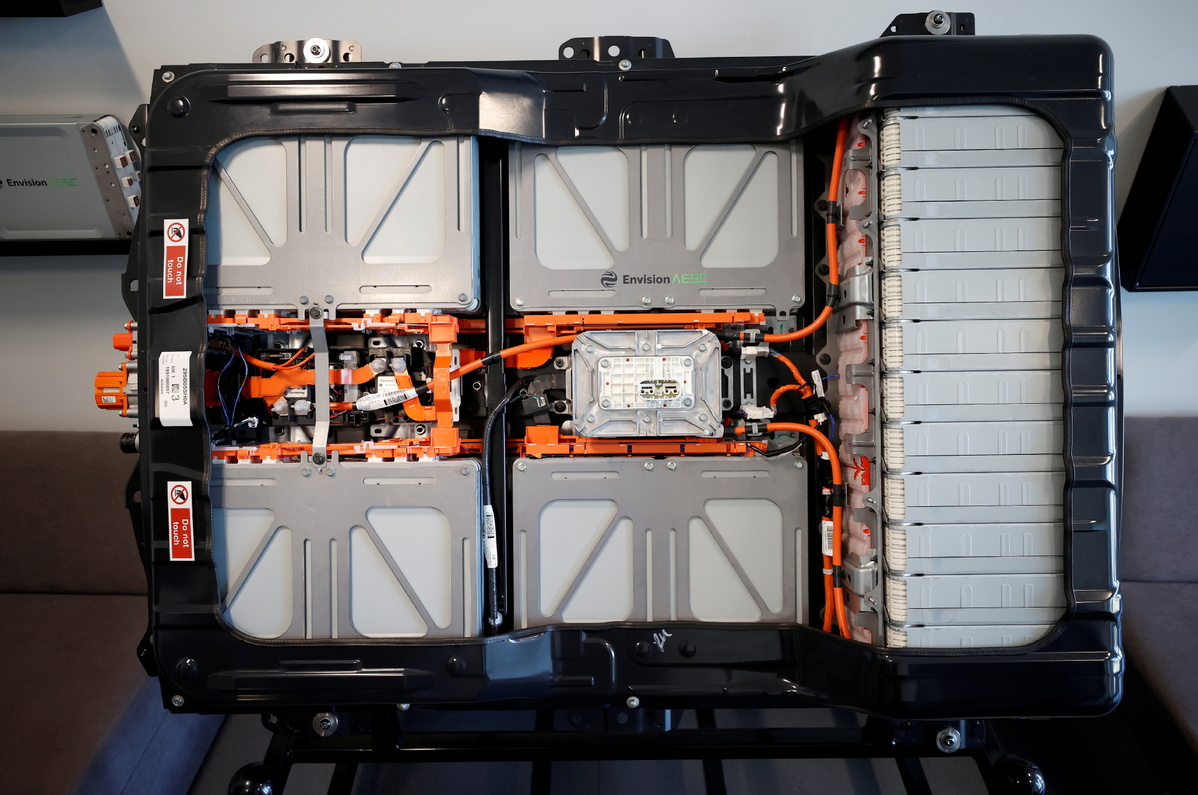Battery life expected to put Nissan ahead, says top executive


As the automotive industry advances toward an all-electric era, driven by the goal of a sustainable, zero-emission future, carmakers are seeking to ensure vehicle batteries get a second life by being recycled, refurbished, and reused.
In an interview with the Financial Times published on Wednesday, Makoto Uchida, Nissan's chief executive, said technologies to recycle materials and extend battery life were a challenge for the whole industry.
Nissan has been working on solutions to recycle electric vehicle batteries even before it officially launched the Leaf, the company's first mass-produced all-electric vehicle, in 2010, he said.
"There will be a lot of discussion in the coming days on how we take care of the total life cycle assessment of the electric vehicle," Uchida said. "Nissan has poured its energy into recycling from long before public debate began on this issue."
With the technology currently available, several electric vehicle components have a limited lifespan, and the most important of them is the battery pack, reported news site autoevolution.
It said that during their lifespan, "these packs go through countless charge and discharge cycles that eventually diminish the amount of charge the pack can hold".
Depending on its construction and several environmental factors, "the currently predicted lifespan of an electric vehicle battery pack is between 10 and 20 years", it added.
With 530,000 Leaf vehicles sold since its launch, Nissan is one of the few automakers to have electric vehicles on the road long enough for batteries to reach the end of their car life, said the FT.
Tesla's Model 3 has overtaken the Leaf as the best-selling electric vehicle of all time, but Tesla and Volkswagen are still "far from receiving batteries for recycling", Nissan has noted.
Since the introduction of the Leaf, a joint venture between Nissan and trading house Sumitomo has studied ways to repurpose batteries, including for emergency power during natural disasters or to generate renewable energy in homes and buildings.
Batteries from the Leaf are already being reused to store renewable energy at 7-Eleven convenience stores and to power railroad crossings and delivery robots in factories.
The European Union already has a directive that requires manufacturers to recycle batteries. This is part of the European Green Deal and related initiatives, including the new circular economy action plan and the new industrial strategy.
A recent European Commission proposal to update the regulatory framework for batteries said that "given the important role they play in the roll-out of zero-emission mobility and the storage of intermittent renewable energy, batteries are a crucial element in the EU's transition to a climate neutral economy".
The EU said it is seeking to introduce mandatory requirements on sustainability, minimum recycled content, performance and durability criteria, safety, and requirements for end-of-life management.
It also said there would be "due diligence obligations" for economic operators on the sourcing of raw materials for batteries.

































